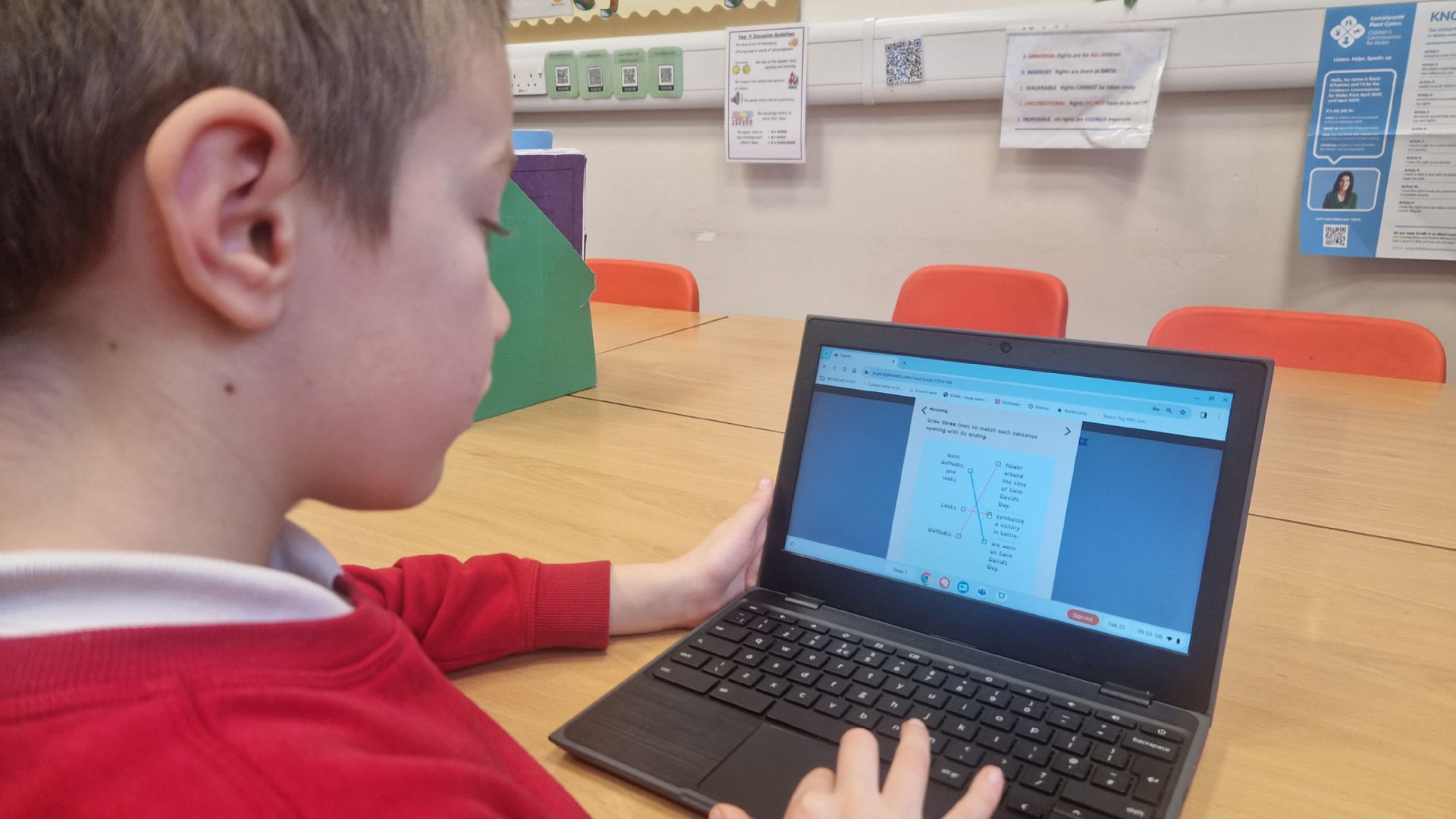
Stacey Primary: Voice 21 within a Welsh Context (Guest Blog)
November 15, 2024 | 10months | Giglets News
Stacey Primary’s School Context
Stacey Primary is based in Adamsdown, Cardiff. There are 43 languages spoken at the school, with 63% of the pupils learning English as an additional language, 79% of pupils from a minority ethnic group and 43% of pupils eligible for free school meals. Before starting to work with Voice 21, teachers reported that children’s spoken language skills did not enable them to access and engage in learning and the curriculum.
The school joined Voice 21 in September 2021. Emma, the Headteacher, and her Languages, Literacy and Communication Lead, took part in a trip organised by Central South Consortium to visit an oracy school in London. Emma remembers being ‘blown away’ that a school serving a similar community to hers in Cardiff enabled students to become so confident and articulate.
"I immediately felt inspired and compelled to become a Voice 21 member school so my children could have the same opportunities to achieve excellent outcomes". - Emma, Headteacher, Stacey Primary.
Stacey Primary signed up for 4 years and in June 2024 became the first Welsh Voice 21 Oracy Centre of Excellence. In September 2022 they began their inquiry-based learning approach based on the Kath Murdoch model. When the Curriculum for Wales roll-out began in 2022, their work with Voice 21 meant that they already had a consistent approach to teaching talk and learning through talk across the school. This means they have been able to place oracy at the heart of their new curriculum.
Vision and Values
Emma and Sana (Oracy School Lead) believed that oracy would be the key to unlocking their learners' potential and this vision has been essential to their success. Emma says that ‘everyone has to be on board’ and as a headteacher you have to have high expectations of pupils’ talk. To ensure that oracy is part of the culture at Stacey, Emma and Sana involved staff from the start in creating a school vision for oracy: ‘Our voice empowers our right to be heard.’
Emma believes that becoming a Voice 21 Oracy School has offered high-quality professional development for the whole staff body, and she can see the results in improved talk across the school. It has not been an overnight fix; it has taken four years for Stacey Primary to embed oracy into all aspects of school life and they are still continuing on that journey.
"It took time for staff to understand that this wasn’t a scheme of work but a journey of discovery, developing their pedagogy and strengthening the use of the Voice 21 resources to support learners to empower their right to be heard". - Emma, Headteacher, Stacey Primary
Implementation Journey
The Storytelling Approach was embedded before becoming a Voice 21 school. This meant Stacey had already started using oracy to tell stories and provided children with the tools to talk before they wrote. The work with Voice 21 complemented this approach. The school’s journey was supported by ensuring that some basic Voice 21 strategies were implemented quickly and consistently across the school. Staff have used the Teacher Benchmarks and Oracy Framework to evaluate their own practice. They held regular staff insets and CPD sessions to ensure staff had the confidence and skills to implement high-quality oracy teaching and experiences.
Once classroom practice was secure, they designed, piloted and rolled out a school-wide oracy curriculum that sits at the heart of their inquiry-based learning approach. Staff undertake a sequence of oracy lessons that build towards a variety of oracy outcomes to authentic audiences. As a school, they have also made full use of the online CPD on offer through the Voice 21 Exchange (the whole-school online learning portal for Voice 21 Oracy Schools) where staff have undertaken their own intersessional pedagogical inquiries.
Another important step on their journey was changing the way they undertook assemblies: by moving to a more dialogic approach they were able to place oracy at the heart when learning about Rights, Health and Wellbeing and Religion, Values and Ethics. The school developed a culture of celebrating and praising oracy via Friday’s Praise Assembly through pupils’ individual learning goals, self and peer assessment, and oracy-specific praise (linked to the Oracy framework), all of which are used consistently across the school.
Impact of Oracy at Stacey Primary
As a result of their journey, pupils at Stacey are highly engaged and enjoy their learning. They have increased confidence when speaking and can speak to a wide range of people including adults they do not know and large audiences. Through the school’s restorative approach to building, maintaining and repairing relationships, pupils feel that they are respected and whatever the situation they know that their voice will be listened to and conflict can be resolved restoratively.
The purpose of Curriculum for Wales is to support learners to become ambitious, capable learners, ready to learn throughout their lives; enterprising, creative contributors, ready to play a full part in life and work; ethical, informed citizens of Wales and the world; and healthy, confident individuals, ready to lead fulfilling lives as valued members of society. Emma believes that for this to be realised at Stacey Primary School, oracy has to be at the centre of their curriculum, empowering their learners to undertake real authentic experiences.
Click here to explore about how working with Voice 21 can impact your school and students.
